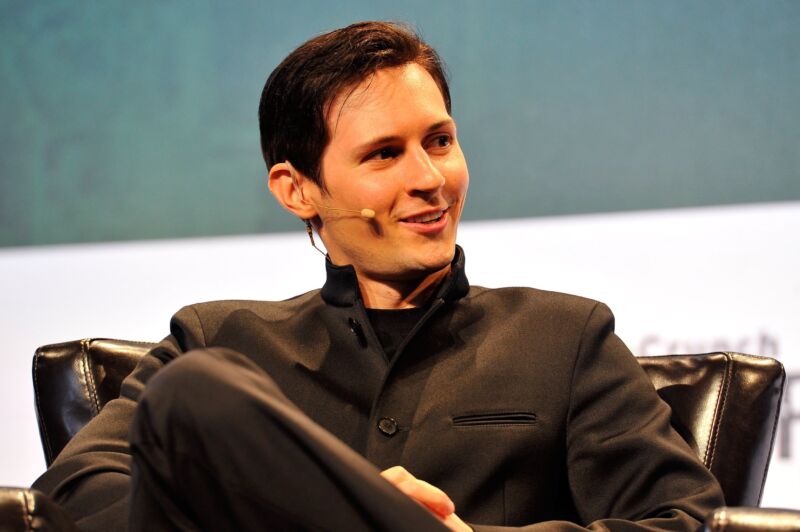
Getty Images | tSteve Jennings
After the arrest of Telegram CEO and co-founder Pavel Durov in France over the weekend, his detention was extended for up to four days while a judge decides whether he should face criminal charges.
“The detention of Durov, 39, was extended beyond Sunday night by the investigating magistrate who is handling the case, according to a source close to the investigation,” Le Monde reported. “This initial period of detention for questioning can last up to a maximum of 96 hours. When this phase of detention ends, the judge can then decide to free him or press charges and remand in further custody.”
Telegram “is accused of failure to cooperate with law enforcement over drug trafficking, child sexual content and fraud,” the BBC wrote. Telegram yesterday said it “abides by EU laws, including the Digital Services Act,” and that the platform’s “moderation is within industry standards and constantly improving.”
“Telegram’s CEO Pavel Durov has nothing to hide and travels frequently in Europe,” the company said. “It is absurd to claim that a platform or its owner are responsible for abuse of that platform. Almost a billion users globally use Telegram as means of communication and as a source of vital information. We’re awaiting a prompt resolution of this situation.”
Durov’s arrest warrant was issued by “France’s OFMIN, an office tasked with preventing violence against minors,” Le Monde wrote. The warrant is reportedly related to “a preliminary investigation into alleged offenses including fraud, drug trafficking, cyberbullying, organized crime, and promotion of terrorism.”
The New York Times reported that “Laure Beccuau, the Paris prosecutor, said in a statement that the arrest was part of an investigation opened on July 8 ‘against person unnamed’ on a raft of potential charges, including complicity in the distribution of child pornography and selling of drugs, money laundering, and a refusal to cooperate with law enforcement.”
Reuters wrote that a police spokesman told the news agency “that Durov is under investigation by the national cyber crime and fraud offices for failing to cooperate over cyber and financial crimes on Telegram.”
Macron: Arrest not a political decision
Durov was born in Russia and also has citizenship in the United Arab Emirates and France. Telegram is based in the UAE.
The Russian embassy in France reportedly said it “immediately asked French authorities to explain the reasons for this detention and demanded that [Durov’s] rights be protected and that consular access be granted. Up to now, the French side is refusing to cooperate on this question.”
French President Emmanuel Macron wrote today that the French judicial system is acting independently. “The arrest of the Telegram president on French territory took place as part of an ongoing judicial investigation,” he wrote, according to a Google translation. “This is in no way a political decision. It is up to the judges to decide.” Macron also wrote that France is committed to “freedom of expression and communication.”
Telegram offers a mix of private messaging and social-network features. It lets users create groups of up to 200,000 people, and its Channels feature allows posting of public messages to audiences of any size. Telegram messages do not have end-to-end encryption by default, but the extra level of security can be enabled for one-on-one conversations.
“If you want to use end-to-end encryption in Telegram, you must manually activate an optional end-to-end encryption feature called ‘Secret Chats‘ for every single private conversation you want to have,” Matthew Green, a Johns Hopkins University professor and cryptographer, wrote. “The feature is explicitly not turned on for the vast majority of conversations, and is only available for one-on-one conversations, and never for group chats with more than two people in them.”




















+ There are no comments
Add yours